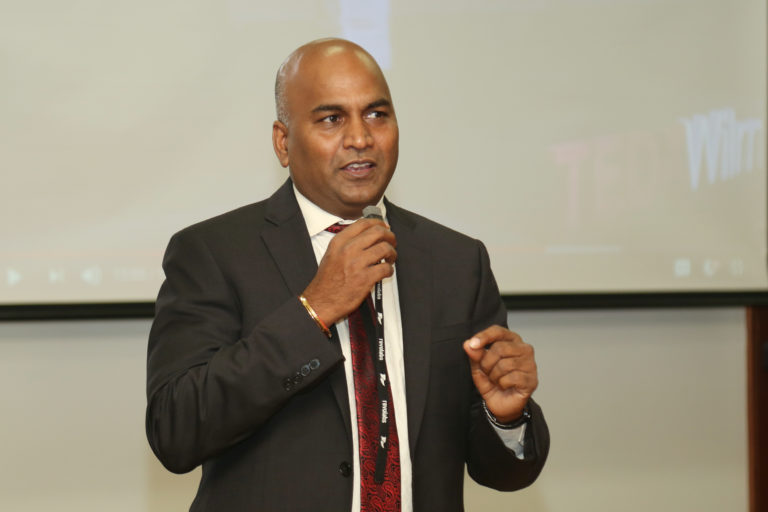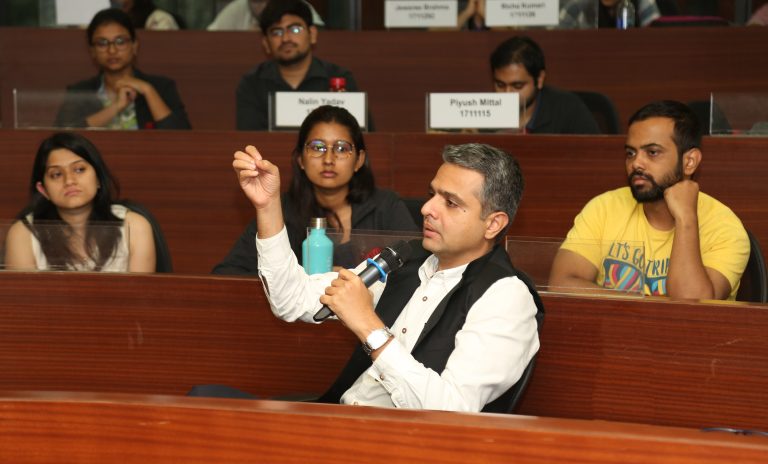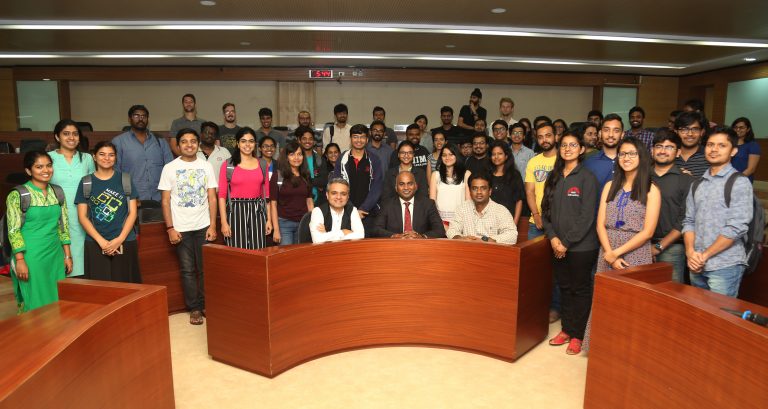August 1st, 2018I offer an elective called ‘Communication for Leaders’ to the second year MBA students at IIMB. The elective is grounded in the theories of charismatic leadership and persuasive communication. The final leg of this elective is to explain how ceremonial speeches like motivational speeches, keynote speeches and my favourite, TED talks bring an impact in audiences. I am fascinated by TED talks. They are great case studies of the theory that we discuss in my course and also happen to be my research focus. So I understand them from a theoretical perspective. But I haven’t given one myself and do not have a ring side view of the process. So in this teaching term, I was lucky to have one of my old Toastmaster friends, Mr. Sunil Robert, a senior manager at TCS USA, author and a TEDx speaker come to my class and share his experiences with my students who hopefully, will give their own talks someday. This blog is a summary of his experience of giving his talk at the TEDx Wilmington in USA earlier this year. The TEDx talk can be accessed here https://www.youtube.com/watch?v=w0iY-BYZdLw.

Communications expert Sunil Robert addresses students at IIMB on July 31
Sunil shared the intense process of how TED talks work. The first phase is to get your idea shortlisted by the organizers. Hundreds of people apply to these talks. Each of them are quite unique in their own way and the organizers select only a handful of the best ideas for the next event. From the day, his idea got shortlisted, Sunil was given lot of guidance by the organizing team to fine-tune his idea and build a 16 to 18 minute speech. That is roughly 2000 to 2200 words. He had to send drafts of his speech for review. He also had to send videos of his talk to the team. Each time, he got rich feedback from the organizers to improve the overall quality of his script and delivery. Sunil said that he struggled to get his script right. His opening alone took more than 50-60 iterations till he felt that it captured the right emotions that would give his audiences “a-punch-in-the-gut”.
As the D-day approached, he worked harder. There was a full dress rehearsal of the entire program with all speakers a day before the main show. All of this helped Sunil overcome his own inhibitions and get more comfortable with the concept. Despite being a Toastmaster and a natural public speaker, Sunil confessed that he was nervous. He clarified that many other speakers were not very comfortable with public speaking and were more nervous than him. Many of them had even taken help from professional speaking coaches. A lot of attention is given to every detail of the event including the speaker’s dress. Sunil decided to wear an Indian Bandi because a significant portion of his story was from his upbringing in India and the audiences would relate to it better.
Sunil’s talk has been viewed more than 18000 times as of today. The best part of his talk is that it is making a positive impact. Sunil shared anecdotes of how viewers feel motivated and hopeful of a better future after listening to his story. Sunil also shared that his talk helped save a life. “With my TEDx talk and my lecture at IIMB, both items on my bucket list, I can die a happy man now,” he said jokingly to my students.

A section of the students with Prof. Rakesh Godhwani during the talk
My students asked many questions like how one overcomes nervousness on stage, how to write a better speech and how to overcome the dreadful inhibition of sharing one’s intimate story with the world. Sunil gave wonderful answers with more anecdotes from his rich experience and encouraged my students with this sentence, “I believe each of us has a book and a TED talk within us. We should share that story with the world and impact someone’s life positively.”
Having Sunil in my class was a great learning for me and my students. The talk not only strengthened the theory we discuss in our classes, it also showed how the real world works and the intense effort that goes in making a TED talk.

The speaker, Sunil Robert, with his audience, after the talk

